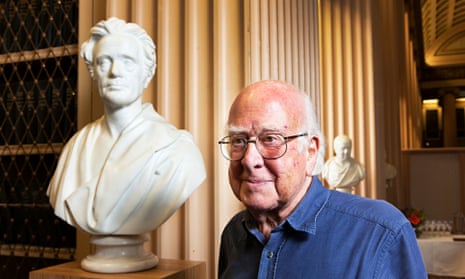When the European Rosetta spacecraft awoke last year from a decade-long slumber, and dropped a robot on a comet, it was a bricklayer’s son from east London who, as project scientist, kept us informed. Matt Taylor’s dad told him physics was the “science of everything”. He listened and became a rocket scientist. Few people will have science on their minds on 7 May. In the face of other priorities – healthcare, housing, education, wages – sending machines into space, mastering DNA and probing the Higgs boson can seem like luxury pursuits. But they are nothing of the sort. As well as the priceless intellectual enrichment that comes from understanding the world, countries that invest in science prosper. With knowledge comes wealth.
Britain is a scientific heavyweight. With less than 1% of the global population, the country produces nearly 16% of the world’s most cited scientific papers. It is home to more Nobel laureates than any country outside the US. But science has taken a battering here and its position is fragile. That hard-earned excellence can easily be squandered. To reinvigorate British science will take long-term planning, smarter education and an open door to the world’s finest minds – and more cash.
The Tories have spared science from the heftiest cuts, and invested in sexy fields, from graphene to quantum technology. But as a portion of GDP, Britain’s spend on R&D is woeful: at 1.72% it sits firmly below the EU average. George Osborne says science is a “personal priority”, but the Tories will not commit to keeping the ringfence that has protected the research budget. It is rare that Eds Miliband or Balls talk science. Labour make no science budget commitments, and instead stress the need for stable, long-term funding. They want a national commission to make Britain the best place for research. But this is too vague. As the Campaign for Science and Engineering points out, Labour could boost British science, but they could bust it too.
Natalie Bennett claims to run the real party of science. The Greens pledge to raise public funding for research from 0.5% to 1% of GDP over 10 years. But they are the party of science that suits them. Their opposition to genetically altered animals would ban more than 2 million experiments each year, many of which underpin crucial research on complex diseases, from cancer to dementia.
The Liberal Democrats alone commit to the science budget ringfence. They want to raise capital and research spending in line with inflation by 2020, put a science specialist in every school and have an immigration policy that favours researchers. This is the bare minimum that British science needs. If the election were to be decided solely on science policy, then the Lib Dems and just possibly the Conservatives would be the parties to vote for. But the Conservative threat of an EU referendum threatens huge instability in international cooperation. Labour need to get their act together, and if the Liberal Democrats feature in the coming government they must not give an inch, or even 25.4mm.
